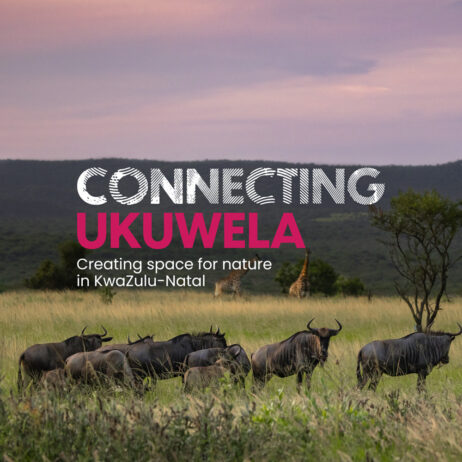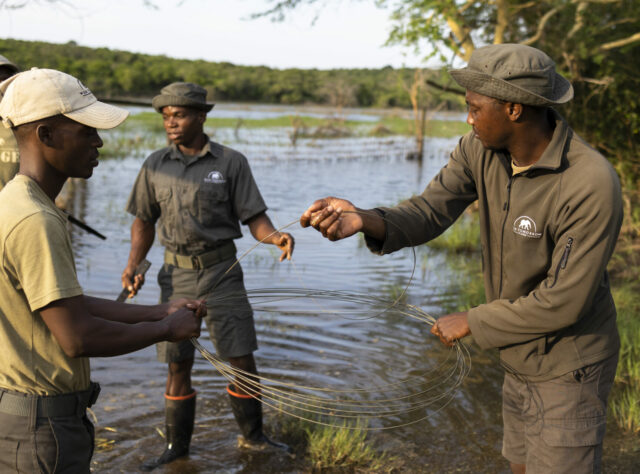
Ukuwela's rangers patrol the reserve and remove wire poaching snares before wildlife can be harmed. Credit: Chantelle Melzer
Securing land is only the first step— rangers work on the frontlines of conservation to safeguard reserves, monitor wildlife, and face natural and human threats head on. At Wild Tomorrow, the incredible work they do every day helps protect and restore some of the world’s most threatened habitats and species.
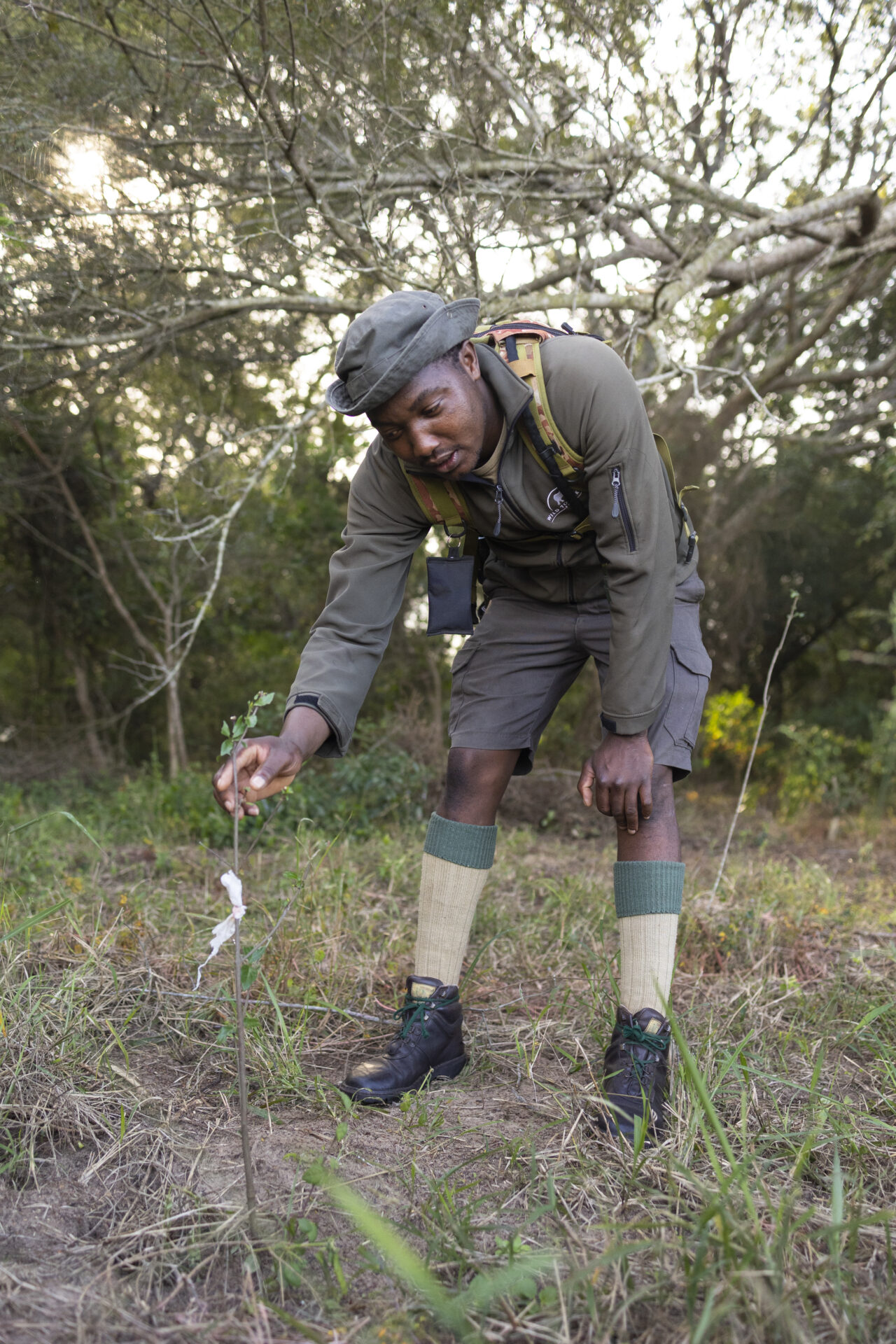
Siya and the other rangers patrol the reserve, checking on everything from wildlife safety to newly planted trees. Credit: Chantelle Melzer
“Hello! My name is Siya Siyabonga, I am the Assistant Reserve Manager at Wild Tomorrow’s Greater Ukuwela Nature Reserve (GUNR), in South Africa’s KwaZulu-Natal.
I would like to share with you one of my favourite memories from working on the reserve. It was a day I will never forget because my team and I were able to save the life of a Zebra (Equus quagga) and countless other animals from snares set by poachers.
One quiet Sunday afternoon, my fellow ranger Zamani and I set off on our usual patrol out into the GUNR. Before long, we began to find fresh snares, only hours old. After reporting our find to the reserve manager, Zamani and I set about removing them. The area was close to the Sipacai River, with good vegetation cover, and so it was a popular spot for many animals. The poachers knew this and placed a total of 65 snares there— we knew we couldn’t allow the animals to be put in such danger.
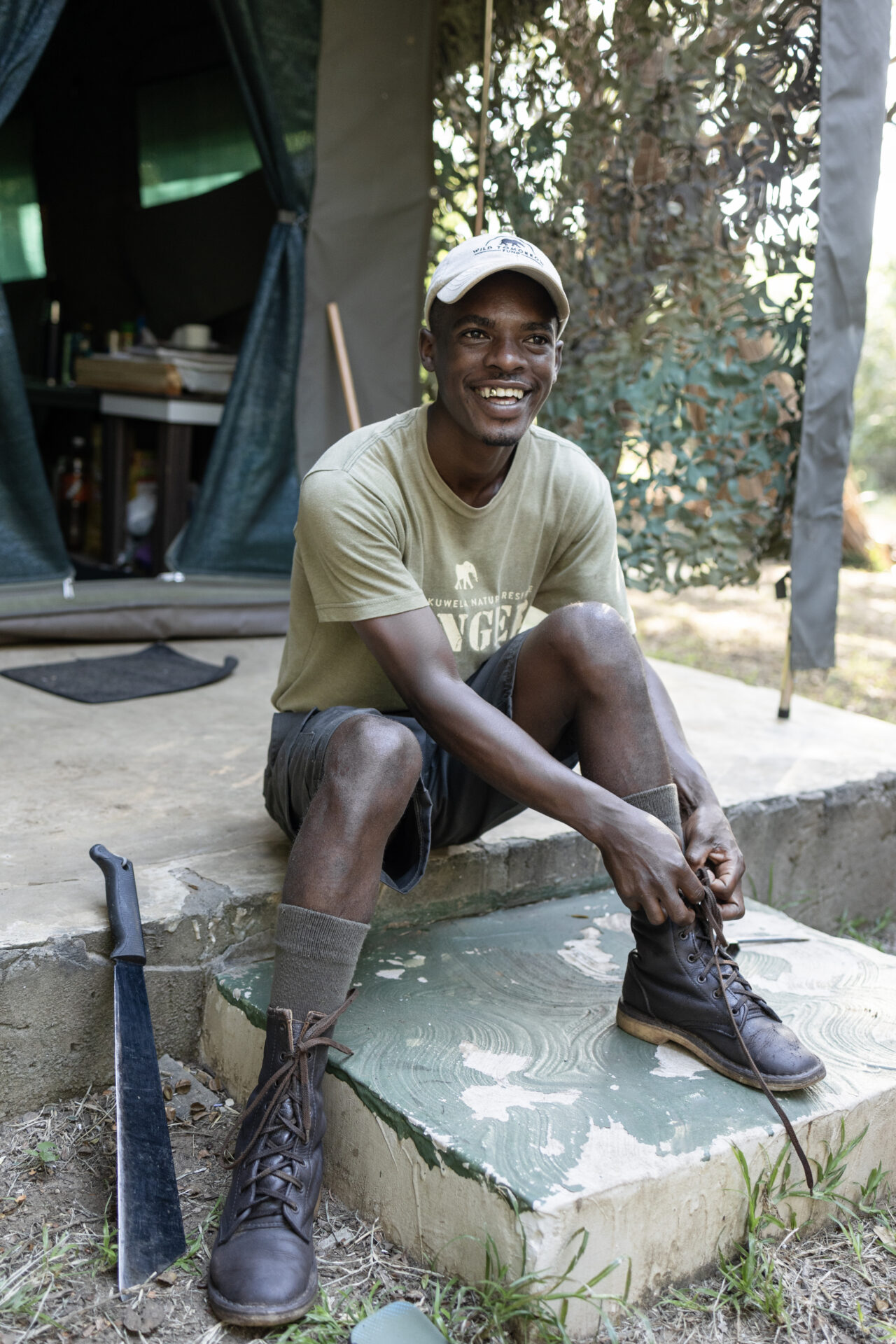
Ranger Zamani getting ready to patrol the GUNR. Credit: Chantelle Melzer
While clearing the area, we discovered two Zebra had already been caught in the traps. One Zebra had tragically been killed, the other was still alive but struggling, unable to free itself. Now, if it was an animal such as a Nyala (Tragelaphus angasii) that was trapped, we could have attempted to free it by ourselves, but a Zebra is very large and strong and could easily panic and injure us by accident if we got too close. In these cases, the reserve manager calls on the vet for help. While we waited for help to arrive, Zamani and I stayed by the Zebra’s side and did everything we could to soothe and calm it, then, between the four of us, we were able to free the Zebra, which is now alive and well.
At first light the following day, we cleared the area and made certain it was once again safe. However, we knew the poachers would return so I asked two of the Green Mambas to pose by the river just outside the reserve and pretend to be fishing while they kept a look out for anyone walking by. Soon, they phoned and told me three men with dogs were entering the GUNR through the fence. From my vantage point in a tree, I could see they were the poachers as they were trying to chase animals into their snares, not knowing we had already removed them the night before. When the K9 unit arrived to chase them off, the poachers fled and swam across the river to escape them.
Several staff recognised the men as living locally, so we visited them at their house. There, I explained it was my job to stop them from poaching on the GUNR, and that all the reserves are working together to restore the region to a place thriving with wildlife, and the more successful they are, the more employment they can provide. The poachers were remorseful for what they had done and were forbidden by the Indunas— local tribal leaders— from poaching, with a close eye kept on them from then on.
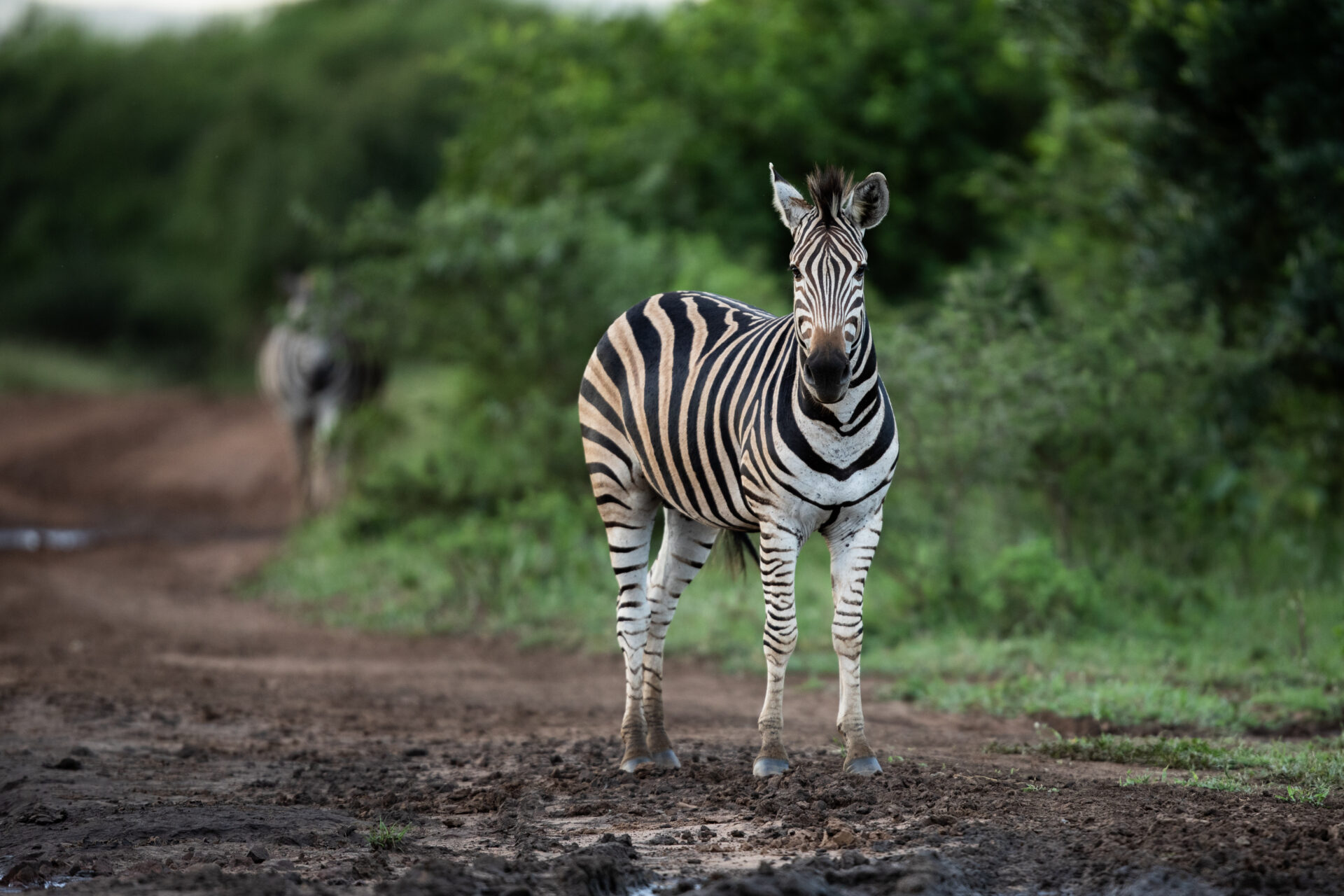
Thanks to the dedicated work of staff like Siya and Zamani, the wildife of Ukuwela has a safer place to live. Credit: Chantelle Melzer
We hope that through our work providing education on the long-term benefits of conservation and the vital importance of protecting nature, fewer people will engage in poaching and will embrace conservation the way so many in the local communities already have. By supporting WLT’s spring appeal: Connecting Ukuwela, you can help connect the GUNR and give vital space to nature, where myself, the rangers, and Green Mambas can protect wildlife and help it to thrive.
Thank you.”
Read more here about our spring appeal: Connecting Ukuwela and donate today to see your donation matched to double its gift value.

